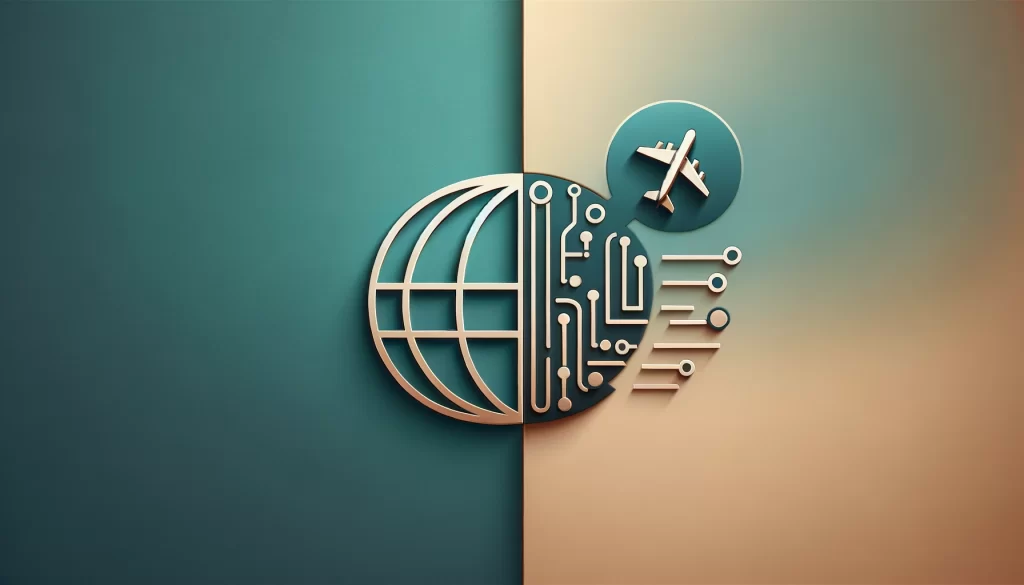In recent years, artificial intelligence (AI) has been revolutionizing various industries, and the travel sector is no exception. The integration of AI technologies is reshaping how we plan, book, and experience travel. This article explores the significant impact of AI on the travel industry and highlights some of the most innovative applications that are changing the way we explore the world.
Contents
1. Personalized Travel Recommendations
One of the most notable applications of AI in travel is the ability to provide highly personalized recommendations. AI algorithms can analyze vast amounts of data, including a traveler’s past trips, preferences, and browsing history, to suggest tailored itineraries, accommodations, and activities. This level of personalization enhances the travel experience by offering options that align closely with individual interests and needs.
For example, AI-powered travel platforms can recommend off-the-beaten-path destinations based on a user’s previous adventure trips or suggest family-friendly activities for those traveling with children. This personalized approach saves travelers time and introduces them to experiences they might not have discovered otherwise.
2. Chatbots and Virtual Assistants
AI-driven chatbots and virtual assistants have become increasingly prevalent in the travel industry. These intelligent systems can handle various customer inquiries, from flight bookings and hotel reservations to local recommendations and travel tips. Currently available 24/7, chatbots provide instant responses to common questions, reducing the workload of human customer service representatives and improving overall efficiency.
Moreover, as natural language processing technology advances, these AI assistants are becoming more sophisticated, capable of understanding context and providing more nuanced and helpful responses. This enhancement in communication is particularly beneficial for international travelers who may face language barriers when seeking assistance.
3. Predictive Analytics for Pricing and Demand
AI’s ability to process and analyze large datasets has revolutionized pricing strategies in the travel industry. Airlines, hotels, and other travel services now use AI-powered predictive analytics to forecast demand and adjust prices dynamically. This approach, known as dynamic pricing, allows companies to optimize their revenue while potentially offering better deals to consumers during off-peak times.
For travelers, this means that with the right tools, they can find the best time to book their trips and potentially save money. AI for travel has made it possible to predict price trends and alert users when prices are likely to increase or decrease, empowering consumers to make more informed decisions about their travel purchases.
4. Enhanced Security and Fraud Detection
Travel involves significant financial transactions and personal data, so security is paramount. AI is playing a crucial role in enhancing security measures and detecting fraudulent activities in the travel industry. Machine learning algorithms can analyze patterns in booking behavior and flag suspicious activities, helping to prevent fraud and protect both travelers and companies.
Additionally, AI-powered facial recognition technology is being implemented in airports and hotels to streamline check-in processes and enhance security. While this raises important privacy considerations, it also has the potential to make travel more secure and efficient.
5. Real-time Language Translation
Language barriers can be a significant challenge for international travelers. AI-powered translation tools are breaking down these barriers, offering real-time translation capabilities. From smartphone apps that can translate signs and menus using the camera to earbuds that provide instant spoken translation, these innovations make it easier for travelers to navigate foreign countries and interact with locals.
This technology enhances the travel experience and promotes cultural exchange and understanding, allowing travelers to engage more deeply with the places they visit.
6. Smart Hotels and IoT Integration
The concept of smart hotels is gaining traction, with AI and Internet of Things (IoT) technologies working together to create more personalized and efficient guest experiences. AI systems can control room temperature, lighting, and entertainment based on guest preferences while also managing energy consumption more efficiently.
Voice-activated assistants in hotel rooms can help guests control various aspects of their stay, from ordering room service to setting up wake-up calls. These innovations enhance guest comfort and contribute to more sustainable hotel operations.
Conclusion
The impact of AI on the travel industry is profound and far-reaching. From personalized recommendations and efficient customer service to enhanced security and seamless experiences, AI is transforming every aspect of travel. As these technologies continue to evolve, we can expect even more innovative applications that will further revolutionize how we explore the world.
However, it’s important to note that while AI brings numerous benefits, it also raises questions about data privacy, job displacement, and the potential loss of human touch in travel experiences. As the industry embraces these technological advancements, it must also address these concerns to ensure that the future of travel is more efficient, personalized but also ethical, and inclusive.
As travelers, staying informed about these AI innovations allows us to fully take advantage of their benefits, making our journeys more enjoyable, efficient, and tailored to our individual preferences. The future of travel is here, and the incredible potential of artificial intelligence is shaping it.
Shahzad Ahmad Mirza is a web developer, entrepreneur, and trainer based in Lahore, Pakistan. He started his career in 2000 and founded his web development agency, Designs Valley, in 2012. Mirza also runs a YouTube channel, “Learn With Shahzad Ahmad Mirza,” where he shares his web programming and internet marketing expertise. He has trained over 50,000 students, many of whom have become successful digital marketers, programmers, and freelancers. He also created the GBOB (Guest Blog Posting Business) course, which teaches individuals how to make money online.




